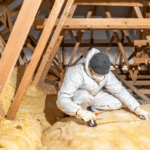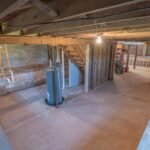Selling your home can be a stressful and overwhelming experience. And while there is a lot of benefit that can come from sprucing up your home as you prepare to sell, many of the things that homeowners have on their to-do list for prepping their home to sell really aren’t necessary. So to help ensure that you’re not wasting your time or money on repairs or renovations that won’t prove to give you a return on your investment, here are three flaws in your home that you shouldn’t worry about when selling.
Small Cracks In Your Driveway

Having good curb appeal for your home is a great way to get more interest in your property. However, there are some parts of your exterior or landscaping that you shouldn’t worry about fixing.
Generally, if you have small cracks in your driveway, getting those repaired won’t really make a big difference to buyers. These cracks can come for any number of innocuous reasons. So unless you know that these cracks are because your home is having foundation issues, many buyers almost expect homes to have some cracks in their driveway. Knowing this, it’s usually better to focus your time and attention on the actual look of your home and ensuring that the property is properly cleaned and well maintained.
Builder-Grade Kitchen

While updating and upgrading your kitchen can make a big difference for you while you’re living in the home and can be a big selling point for buyers, if you haven’t bothered to make updates or upgrades to your kitchen prior to considering putting your home on the market, doing so now usually isn’t a good idea.
With the amount of money that goes into taking a kitchen from builder-grade to professional-grade or a custom kitchen, you likely won’t recoup the costs when selling. So if the cabinets, countertops, and appliances have worked for you up to this point, it’s best to just leave them as-is so that the next owner can make changes to their liking.
Normal Wear-And-Tear
Although it is a good idea to make your home look as clean and well maintained as possible before you put it on the market, there usually isn’t a need to go above and beyond in this area.
Buyers know whether they’re getting a new build home or not. And when the home isn’t a new build, they expect that there will be normal wear and tear on the home they’re purchasing. So while you can and should repair things that are glaringly wrong or broken, putting yourself out trying to make your home look perfect in every cosmetic way just doesn’t make sense.
If you’re already stressed about the process of selling your home, consider using the tips mentioned above to help you know what repairs you can skip over.






